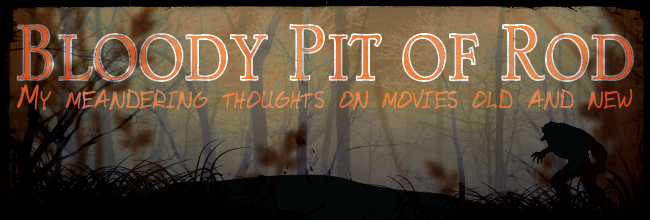In REVOLVER Oliver Reed plays Vito Caprini, an ex-cop who is now the warden of a large prison in northern Italy. Happily married and very good at his job, Caprini is the very model of a solid citizen on the right side of the law. Fabio Testi plays Milo Ruiz, a petty thief in from France whose first robbery in Italy goes badly wrong and ends with him burying his best friend/criminal accomplice in an unmarked grave. After Milo is arrested and placed in Caprini's prison these two men with nothing in common are forced together for mysterious reasons. Caprini's beautiful wife Anna (Agostina Belli) is kidnapped and Vito is told by phone that if he wants her back he must keep silent and arrange for Milo to escape from prison. The warden delays releasing his prisoner for a day to pressure him for the names of whomever is trying to get him out. When Milo claims to have no friends willing to go through something so elaborate to free him, Caprini realizes he must break him out. Putting Milo in the prison infirmary (heh heh), Caprini allows him to escape only to grab the thief so he can make a forced exchange for his wife. Following the only information they have, the antagonistic pair avoid the cops and make their way across the border to Paris. They question Milo's pop star friend Al (Daniel Beretta), who has connections to the underworld. When Al is very surprised that Milo's partner died in Italy and not France, it becomes apparent that the thief wasn't rescued from prison to do a job. And after a swap for Anna goes very wrong, it looks like Milo knows something that might get him killed.
When I first started watching European crime movies years ago I quickly learned that even the worst of them can be counted on to entertain me with great action scenes, vicious characters and the unwritten law that bleak endings were generally the best kind. Before I watched Revolver I'd seen only one of director Sergio Sollima's crime films — the fantastic Violent City. From just these two movies I can say I really hope to see much more of his work. Revolver is not as action packed a story as I've come to expect from Italian crime movies although it certainly has its fair share of fistfights, shootouts and chases. This film has several things on its mind, chief among them how society values one person over another, and why. The movie poses one answer but at the same time asks the viewers if we agree or disagree. Is the death of a person justified if a 'better' person lives by their death? And what does making that choice do to those who are forced to carry it through?
Although Revolver has the central mystery of who wants Milo Ruiz out of prison and why, it's primarily a character-driven story focusing on the relationship between the cop and the criminal. As the two are slowly forced to work together to stay alive, the script shows a steady hand in portraying them as very different people with different goals. The grudging trust they form is believable and affecting. Much of this effectiveness can be attributed to the great performances from Reed and Testi. I've come to expect strong work from Reed no matter what type of film he's in, but Testi is his equal here even with the handicap of being dubbed by another actor.
Also contributing to the strength of Revolver is Ennio Morricone's usual excellent score. The incredibly prolific composer does a fine job here, but I did notice a strong similarity to the maestro's score for the crime movie Il Poliziotto della Brigata Criminale — released in the States as Fear in the City and The Night Caller. I can't complain about this at all, as I think the music is wonderful, but it was the first time I've heard Morricone quote himself so clearly from one score to another.












No comments:
Post a Comment